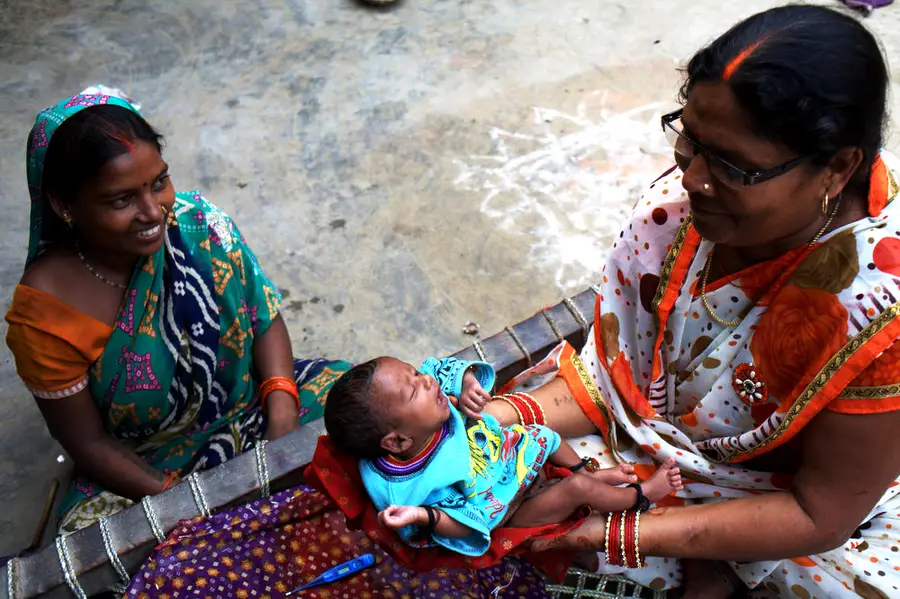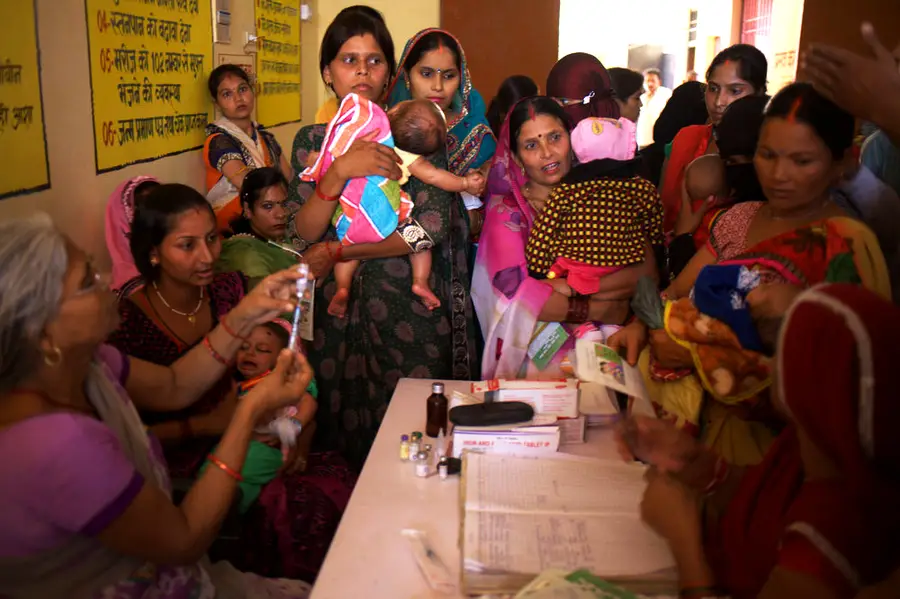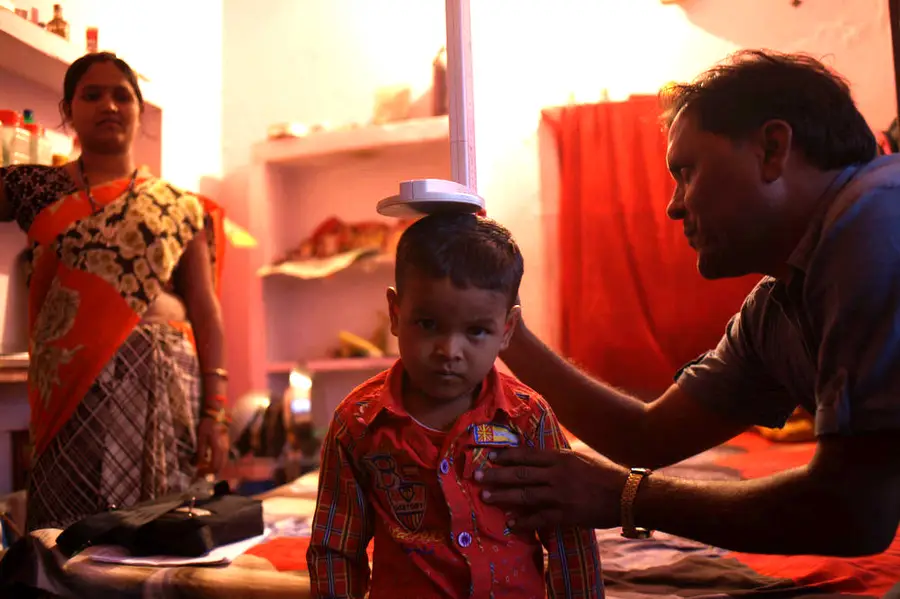
Early childhood mortality in India has steadily decreased in recent years; yet the country still records an extremely high number of deaths from diarrhea and pneumonia, two preventable illnesses. This is due in part to a health system that is poorly equipped to provide quality care for these diseases, with shortages in essential medical equipment, insufficient numbers of trained pediatricians, and gaps in the case management knowledge and skills of frontline health workers.
In 2016 alone, it was estimated that diarrhea and pneumonia killed one child every two minutes in India, or nearly 261,000 children that year. And even when children survive, these illnesses can leave them with long-term health problems. These bleak numbers have challenged experts with the question, what can be done?
Quantitative and qualitative findings from the Research and Evaluation for Action in Child Health (REACH) project, implemented by RTI in the Indian states of Uttar Pradesh and Bihar with funding from the Bill & Melinda Gates Foundation, have yielded some answers to this question outlined in a new series of policy briefs. Here are some of our top recommendations based on those findings.

Recommendation #1: Improve quality of care at lower-level health facilities in order to reduce caseload at higher level facilities
Lack of appropriate primary care and initial case management at lower level facilities—at primary health or at community health centers—often increases the total cost of care and time spent to receive appropriate care for patients and caregivers. We found that higher level health facilities (district hospitals and medical colleges) see a disproportionately large number of sick children, in large part because lower level facilities don’t have the quality of care, or expertise needed, to help very sick children. Of all lower-level facilities surveyed, only 47 percent in Uttar Pradesh and 18 percent in Bihar had oral rehydration therapy corners, which is an inexpensive, simple, and effective way to treat dehydration caused by diarrhea. Also, only 69 percent of the surveyed facilities in both states had a functioning ambulance service, a critical need to transport very sick children to facilities equipped to treat them.
Proposed actions
- Strengthen capacity of providers to improve case management by increasing training, supervision skills, and accelerating the setup of health and wellness clinics
- Strengthen the National Ambulance Service by increasing the number of ambulances via a trust or public-private partnership
- Leverage innovative funding sources (such as government-funded patient welfare committees) to motivate health facilities to improve facility infrastructure
Recommendation #2: Strengthen existing informal private provider networks to ensure appropriate case management and timely referral of cases between the private and public sectors
Our surveys and qualitative inquiry found that 95 percent of caregivers first seek care through informal private providers—including pharmacists, chemists, drug vendors, general stores, and indigenous and folk practitioners. Although generally more expensive, these providers have shorter wait times, are easy to access, and the caregivers perceived satisfactory treatment. While most informal providers can provide basic medicines, they lack equipment and facilities for more severe cases of pneumonia and diarrhea. In these instances, the ability of informal providers to make timely referrals of cases to more advanced facilities can make the difference between life and death for children. A key challenge we identified was that most informal providers are excluded from meaningful engagement between the public and private sectors, meaning they have little awareness, knowledge or incentives to make referrals to formal public and private facilities.
Proposed actions
- Train informal private providers in the appropriate management of pneumonia and diarrhea, especially in the identification of severe cases
- Identify incentives to motivate trained informal providers to serve as well-respected referral links to the formal public and private sectors
- Collaborate with central and state governments to establish an accreditation system for informal private providers

Recommendation #3: Position frontline health workers to be a trusted first point of contact for childhood illnesses in communities
Frontline health workers play an important role attending to the health care needs in rural areas. However, credibility and workload issues prevent them from being trusted healthcare partners. Our evidence showed that communities believe frontline health workers refer care seekers to health facilities to earn incentives, thereby decreasing credibility. We also found that frontline workers were often overburdened and tasked with too many responsibilities to make surveillance of childhood pneumonia and diarrhea a priority, even though this is a primary duty.
Proposed actions
- Reinforce messages that frontline health workers play a key role as community mobilizers to effectively communicate preventive care and care-seeking behaviors
- Prioritize which activities frontline health workers undertake, rather than involving them in every government strategy implemented at the community level
- Enhance hands-on trainings and skill-development trainings to complement knowledge-focused trainings
With continued support and targeted action, and learning from projects such as REACH, India can continue to move the needle towards eradicating childhood deaths due to preventable diseases like pneumonia and diarrhea. Strategic discussions are currently underway with government and other stakeholders (e.g. WHO, UNICEF, private foundations, and academic institutions) at both the federal and state levels to translate key recommendations into state-led action. It is our hope that these ongoing efforts and projects like REACH will build the resilience of India’s health system and lead to a brighter and healthier future for its children.


